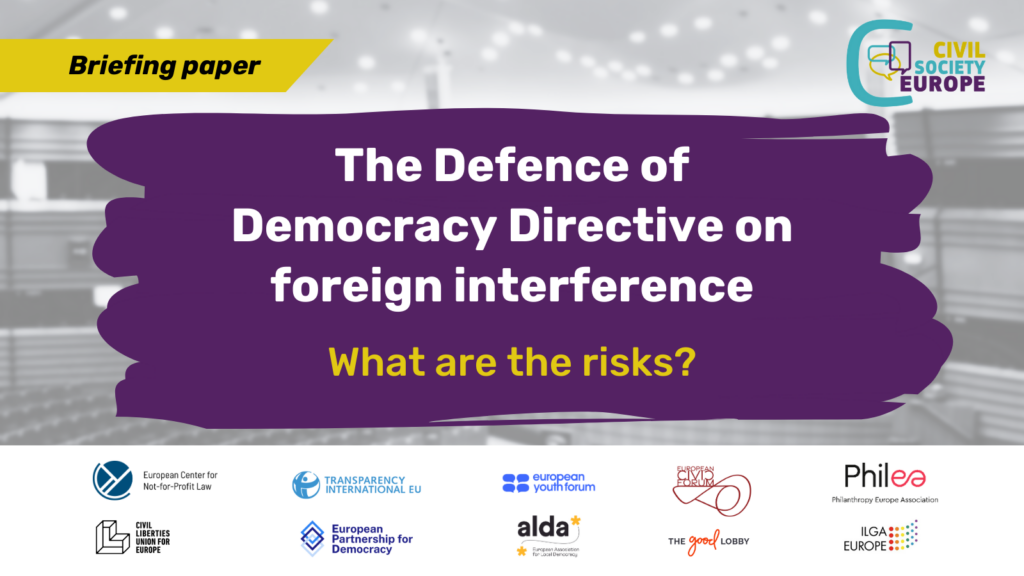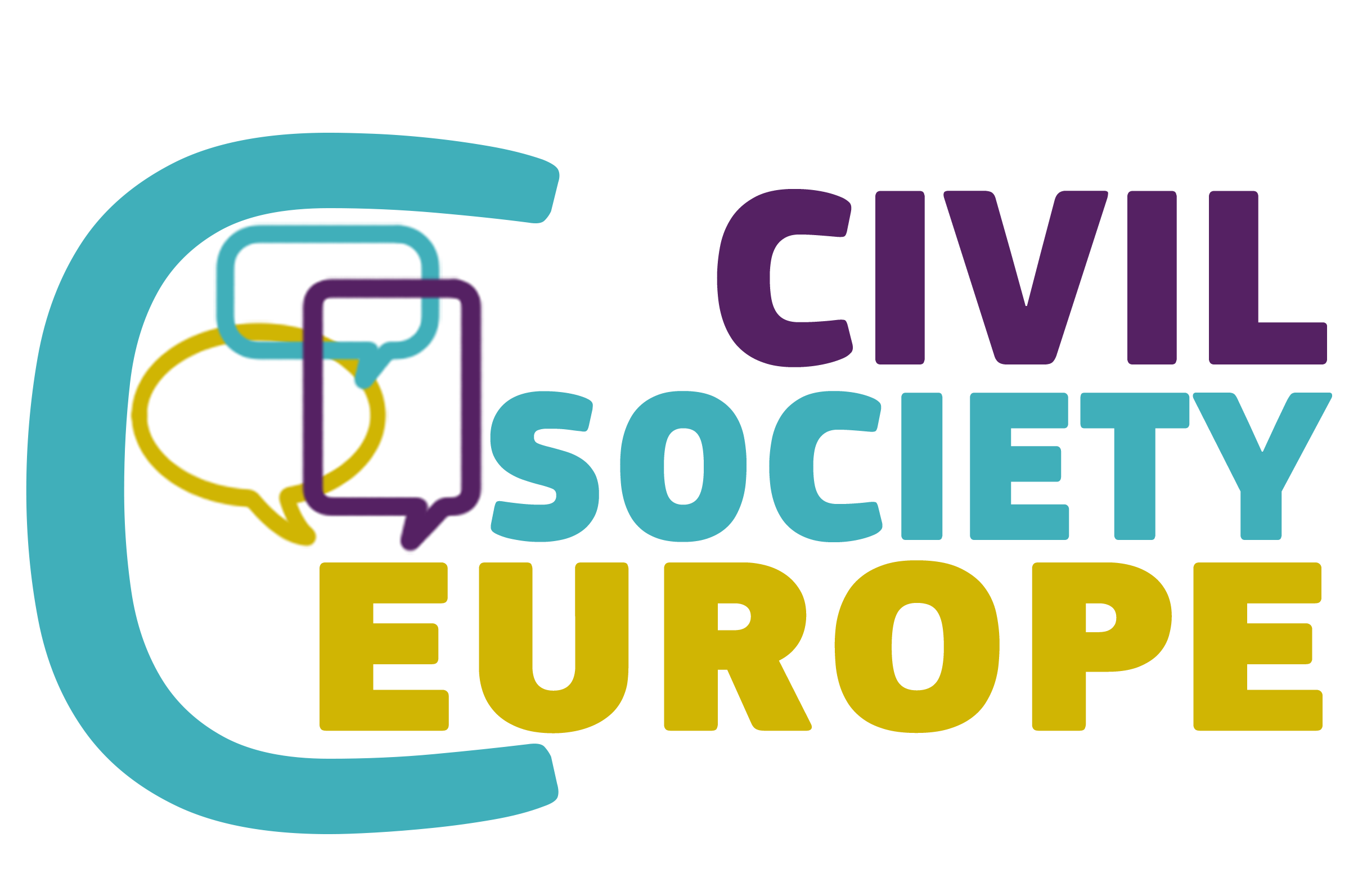This briefing paper analyses the “Directive of the European Parliament and of the Council establishing harmonised requirements in the internal market on transparency of interest representation carried out on behalf of third countries (COM (2023) 637 12/12/2023)”. The document has been prepared by the informal coalition on the Defence of democracy Package coordinated by Civil Society Europe with the contributions of ALDA, Civil Liberties Union for Europe, the European Center for Nonprofit Law, the European Civic Forum, the European Partnership for Democracy, the European Youth Forum, ILGA Europe, Philea, The Good Lobby, and Transparency International EU.

Summary
On 12 December 2023, as part of the Defence of Democracy package, the European Commission (the “Commission”) published a proposal for a directive on the transparency of interest representation on behalf of third countries (the “Directive”). Considering the forthcoming European Parliament elections, the Directive will primarily be negotiated and adopted in the next legislature. It is our understanding that the Belgian Presidency aims to agree on the Council’s General Approach by the end of June and that preliminary discussions will take place in the European Parliament over the coming months.
We outline below our primary concerns as the undersigned civil society organisations (“CSOs”) and why we believe the proposal fails to address the fundamental rights issues raised during the consultation process. We welcome the need for transparency and the Commission’s underlying concern about the increasing attempts to undermine democracy across Europe. However, we believe the Directive is not the correct instrument to pursue this goal and that it does not address the underlying issues (Section 3). Instead, the Directive imposes burdensome obligations on CSOs (Section 4), who are among the most active actors in ensuring transparency and protecting civic space and who play a key role in ensuring that democracy is protected from threats, whether they come from internal or external sources. Thus, placing additional restrictions on civil society will undermine the crucial role that CSOs play without effectively tackling undue interference in democratic processes (Section 3).
Read the full document here.

